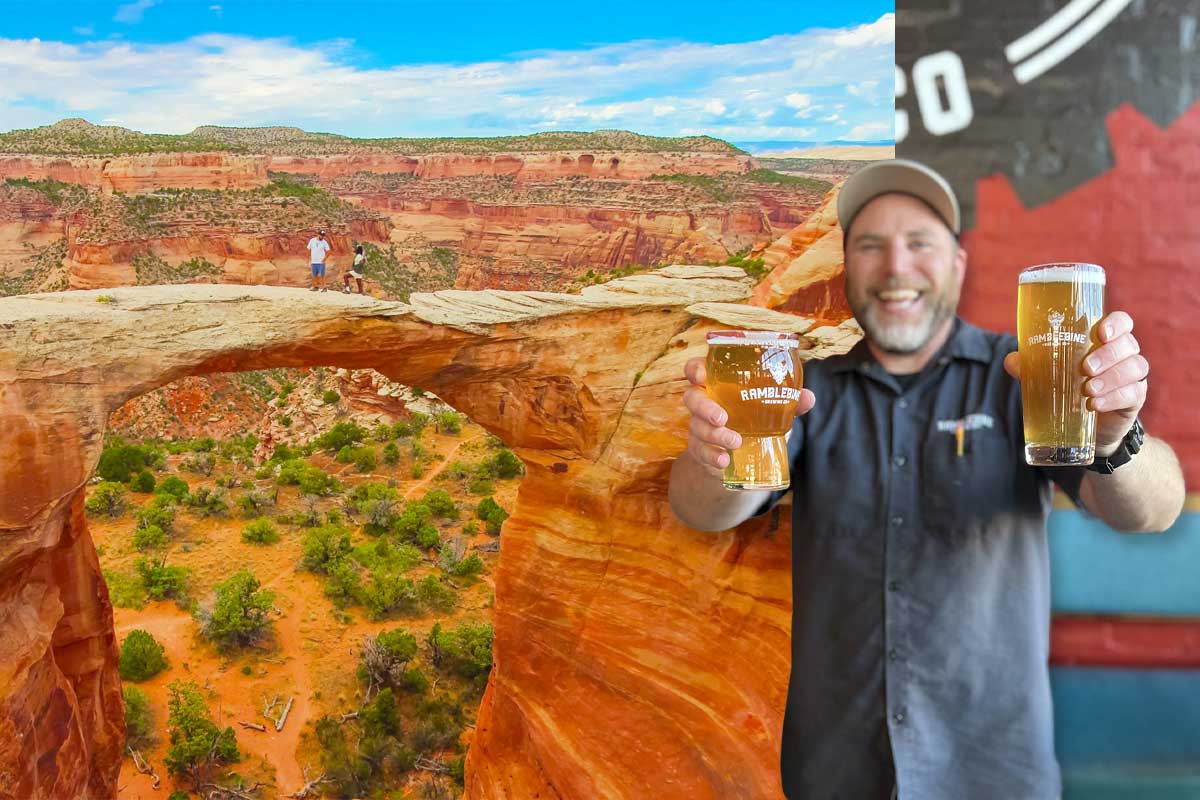Ken Don, who has died aged 80, was a passionate brewer of traditional beer who also played an important role in saving Maris Otter, considered the finest British malting barley.
He spent most of career at Young’s, the revered brewery in Wandsworth, South London, which kept the flag flying for cask ale at a time when the industry was switching to keg beer and lager.
Ken did his “pupillage” – apprenticeship – at Ind Coope’s brewery in Alloa where Skol lager was produced. From there he went on the brewing course at Heriot-Watt University in Edinburgh, where he learned how to make all styles of beer.
As a credited brewer, he went to work for Benskins in Watford and then did further lager brewing at Wrexham. This was followed by a spell in Burton-on-Trent before he joined Young’s in 1980, where he spent the rest of his career.
This was a tumultuous time in the brewing industry. Production was dominated by the Big Six national brewers who had either phased out or sidelined real ale in favour of keg. Their marketing power forced many regional and family brewers also to go down the keg route.
Young’s main London competitor, Fuller’s in Chiswick, with such leading cask ales as London Pride and ESB, had briefly toyed with the idea of making only processed and carbonated ales.
But it remained true to cask as a result of the success Young’s enjoyed with its ales.
Young’s was driven by its ebullient chairman, John Young. He was a passionate believer in both traditional beer and pubs. When he learned that a competitor had redesigned a pub in garish modern style, complete with a fountain in the middle of the main bar, he went to the offending pub and poured a packet of soap flakes into the fountain, with predictable results.
Ken Don quickly assimilated John Young’s passion for cask ale. No corners were cut and no expense was spared in using the finest raw materials for Ordinary Bitter (3.7 per cent), Special (4.6 per cent) and Winter Warmer (5 per cent).The recipes were simple: Maris Otter pale malt, crystal malt and traditional Fuggles and Goldings English hops.
Brewing at the Ram Brewery was set against a backdrop of stables where shire horses delivered beer to local pubs. There was also a ram mascot for visitors to admire while geese and ducks were free to roam around the yards.
Brewing had taken place at the Ram since 1675 – some records suggest even earlier — making it one of the oldest British breweries. The Youngs arrived in 1831 and over the following decades built a substantial estate of more than 200 pubs in London and the Home Counties.
With Ken at the helm, the Young’s beers took on legendary status in London where drinkers found that many pubs owned by other breweries had nothing to offer but keg beer. Winter Warmer in particular was treated with all the solemnity of the latest vintage claret from Bordeaux. Its aficionados would gather in Young’s pubs in December, sample the new batch and give it marks out of 10.
Ken was faced with a crisis in 1989 when seed merchants and barley farmers delisted Maris Otter. They planned to replace it with new varieties of barley that were “higher yielding”, meaning they grew more to the acre and as a result were more profitable.
Along with Adnams, Marston’s and several other regional and family brewers, Ken – with the backing of the Young’s board – found farmers who would accept contracts to grow Maris Otter for them.
The brewers felt it was essential to remain true to Maris Otter for the superb biscuit notes it gave to their beers. Marston’s in particular found that its yeast strain was not happy working with other varieties of malt.
I asked Ken if the specially grown Maris Otter would increase the cost of his beer. He replied: “About a farthing a pint” – a quarter of a penny in pre-decimal money.
In 1992 seed merchant H Banham in Norfolk and Robin Appel Associates at Warminster Maltings in Wiltshire bought the rights to Maris Otter. The grain has been saved for posterity and is now used by scores of brewers in Britain.
A majority of the beers that have won CAMRA’s Champion Beer of Britain trophy are brewed with Maris Otter. It’s now exported to 16 countries and has been taken up by whisky distillers. Robin Appel at Warminster tells me the barley now has the status of Heritage Grain.
Ken Don faced a new challenge in 2006 when Young’s Ram Brewery closed. Following the death of John Young, there were no members of the family who wanted to carry on brewing.
As a result, the company formed a new venture with Charles Wells in Bedford: Wells & Young’s. Young’s became a pub company while Wells brewed beers for the Young’s estate.
Ken Don spent a month or more transferring his beers to Bedford, where he joined forces with Wells’s head brewer, Jim Roberston. Ken had brewed at the Ram with open fermenters but at Bedford he had to cope with modern enclosed cylindro-conical vessels that could produce both ale and lager.
Ken went to work with great determination to match the beers. Bedford water had to be treated to replicate London’s “brewing liquor” while yeast played a crucial role in the aroma and flavour of the finished beer.
Jim Robertson recalls: “Ken brought a single-cell yeast culture to Bedford that was propagated into a batch of fresh yeast and then pitched in conical vessels, cropped and re-pitched. We were effectively training it to work in conical fermenting vessels.”
Jim adds that he’d been sceptical about the magical qualities of Maris Otter but as a result of working with Ken he became a convert.
The Wells & Young’s venture ended amicably in 2011, with Wells continuing to brew Young’s beers, which Ken regularly checked for quality and flavour.
But Young’s beers had not finished their journey. In 2017 Wells sold its Eagle Brewery to Marstons, which continued to brew the Young’s beers until it was bought by the Spanish lager brewer Estrella Damm.
Young’s beers moved yet again, to Banks’s Brewery in Wolverhampton, part of the Carlsberg Marston’s Brewing Company. Banks’s will close in the autumn and Carlsberg tells me the Young’s beers will transfer to Marston’s in Burton-on-Trent, the only ale brewery left in CMBC, now Carlsberg Britvic.
Ken Don, before his passing, must have been saddened to think his beers would end up in Burton, a town with a quite different heritage and culture of brewing to London’s.
But those who once relished the Wandsworth beers, with their superb flavours of biscuit malt and spicy and peppery hops, will long remember Ken Don’s contribution to beer-making with both admiration and affection.






